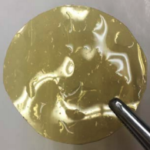APPLICATIONS OF TECHNOLOGY: Solid oxide fuel cell for vehicles Electrolysis cells Electrochemical reactors Hydrogen electrochemical compression cells ADVANTAGES: Compared to conventional solid oxide cell (SOC) Increased power density at lower temperatures Increased durability at a lower material cost High tolerance for thermal and redox … [Read more...] about Solid Oxide Cell Technologies: Metal-Supported Proton-Conducting Solid Oxide Cell, 2018-121, and Improvements in Metal-Supported Solid Oxide Cell Durability, 2019-081
Energy Storage
High Power Metal-Supported Solid Oxide Fuel Cells (MS-SOFCs) 2017-072
APPLICATIONS OF TECHNOLOGY: Alternative fuel vehicles ADVANTAGES: Achieves high power density Viable, low-cost competitor to all-ceramic SOFCs ABSTRACT: Berkeley Lab researcher Michael Tucker has invented symmetric-architecture MS-SOFCs that achieve high power density by optimizing the catalyst infiltration procedure. For details on the fabrication … [Read more...] about High Power Metal-Supported Solid Oxide Fuel Cells (MS-SOFCs) 2017-072
Nanostructured Organic-Inorganic Solid Electrolytes 2018-067
APPLICATIONS: Lithium batteries ABSTRACT: Nanostructured solid electrolytes containing ion-conducting domains and rigid nonconducting domains are obtained by block copolymer self-assembly. Here, we report on the synthesis and characteristics of mixtures of a hybrid diblock copolymer with an organic and inorganic block: poly(ethylene oxide)-b-poly(acryloisobutyl … [Read more...] about Nanostructured Organic-Inorganic Solid Electrolytes 2018-067
Microporous Polymers for Gas, Liquid and Battery Applications 2018-128
APPLICATIONS OF TECHNOLOGY Sorbents, coatings, and selective membranes for: Automotive applications Consumer electronics Energy and energy storage Some of the many possible uses of this technology: Gas sensing Gas Separations Dehumidification Water purification, desalination Ion-exchange Electrowinning Fuel cells … [Read more...] about Microporous Polymers for Gas, Liquid and Battery Applications 2018-128
Microstructured Ion-conducting Composites 2017-012
ABSTRACT A composite membrane with nanostructured inorganic and organic phases is applied as an ion-selective layer to improve processability, prevent dendrite shorting, and increase power output of lithium-metal anodes through better Li-ion conductivity. Nanoconfinement, as opposed to macroscale confinement, is known to dramatically alter the properties of bulk materials. … [Read more...] about Microstructured Ion-conducting Composites 2017-012

